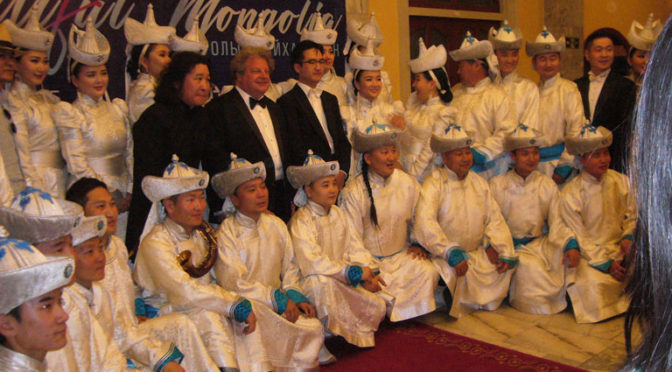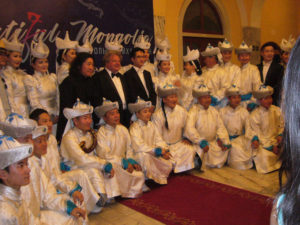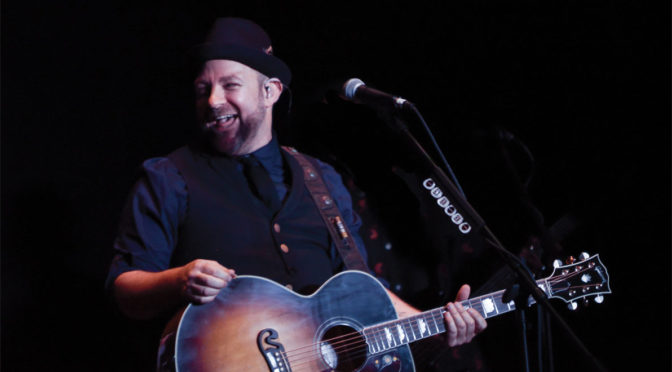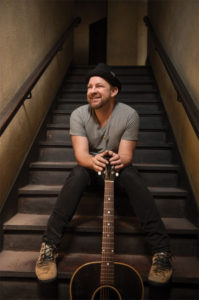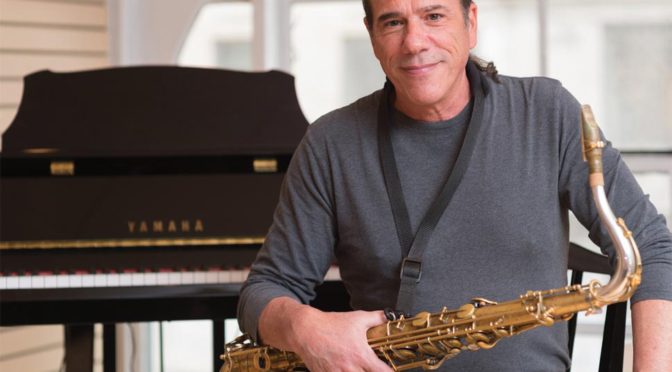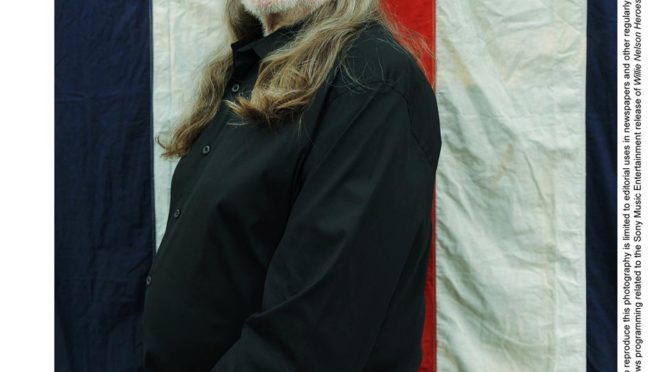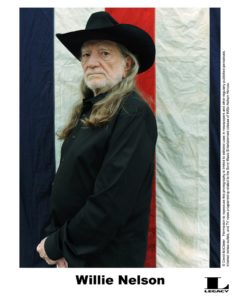Thomas A. Blomster of Local 20-623 (Denver, CO) (with black bow tie) was made an honorary member of the Morin Khuur Ensemble (pictured here) and presented with official pendants and a commemorative history book of the ensemble. His score of Postcards to Mongolia was placed in the Mongolian national archives as a permanent part of the country’s more than 2,000-year history.
Last summer, Mongolia’s Morin Khuur Ensemble, performed the world premiere of Postcards to Mongolia, by American composer and conductor Thomas A. Blomster of Local 20-623 (Denver, CO)—a first for both maestro and orchestra. The concert was broadcast live on Mongolian TV and the score was placed in the Mongolian national archives.
“Making music, the arts, are an integral part of the Mongolian people,” Blomster says, “There’s a real sense of identity. You combine that with the music making and it’s really powerful.” Ulaanbaatar, the capitol, hosts world-class concerts; the opera singers are veterans of major opera houses around the world. What’s more, there is an audience for these concerts. “In this developing country, there is tremendous support for the arts,” he says.
He and his wife, pianist Noriko “Nikki” Tsuchiya, also of Local 20-623, were guests at the opening ceremonies of the midsummer Naadam Festival. Dating back to Genghis Khan, the elaborate, highly choreographed event is Mongolia’s version of the Olympics, with competitions in archery, wrestling, and horse racing. Plus, it showcases performing arts groups: traditional ensembles, choirs, and dancers, ballet, military bands and choir, and pop singers. The whole time, Blomster says, “The Mongolian Philharmonic was in the pit supporting them.”
The Soviet influence in Mongolia is still in evidence, especially in its cultural institutions. The training of Mongolian musicians is pure Russian conservatory. “Everybody in the [Morin Khuur] ensemble is at a virtuoso level,” Blomster says. “There is a high level of technical ability, but the intonation is a whole other level. Their approach is different. I could hear them tuning between every piece. Each player was sensitive to this—for instance, when a musician was tuning his morin khuur, you could hear the yatga softly play the intervals. You combine this technical expertise of the ensemble with heart and soul—the Mongolian culture is alive and well. Genghis Khan is not dead!”
Blomster’s journey to Mongolia began 20 years ago, when he attended an exhibition at the Denver Art Museum. He watched a loop of a film from World War I, so old it was inaudible, but clearly it was the Nadaam Festival. “I could see the musicians playing these giant oversize finger cymbals and as a percussionist I was dying to know what the sound was like.” Years later, he found Mongolian cymbals in a junk shop which, he says, “I immediately dropped a fortune on.”
Eventually, he made a connection at the Mongolian Philharmonic, with the assistant executive director Erdene-Oyun Burgedee, who visited Denver and introduced Blomster to the work of the Morin Khuur Ensemble, a traditional folk orchestra associated with the philharmonic. They became good friends as he helped her navigate the Denver arts scene. The thought occurred to Blomster, “What if I wrote a piece for the Morin Khuur Ensemble?’”
A bowed instrument similar to a violin, the morin khuur holds a sacred place in Mongolian culture. Says Blomster, “It’s the soul of the country. In the old days, even in the yurts, every nomad owned a morin khuur, in part, to keep away evil spirits. It’s an instrument that has many powerful associations.”
“[In my composition] I tried to be respectful of the aspects of their music, which could easily be overwhelmed by my Western training. Using pentatonic scales was at the forefront and being careful about not having too much moving harmony.” For instance, he says, “There are a whole bunch of hotshot yatga players—which has some of the same limitations as a classical harp. If it’s set in a certain key, that’s the note choice you have, but I also know the bass strings of the harp—even if you don’t hear them out in the audience—are really good for reinforcing the bottom harmony.”
Blomster, who is director of the Colorado Chamber Orchestra, splits his time evenly conducting and playing percussion (including timpani and vibes) in other orchestras as well as jazz ensembles. “A big part of what attracted me to the country was the landscape—the mountains and huge steppe plains,” he says. He drew inspiration closer to home, from his relationship to the land between the Rocky Mountains and the Great Plains.
They were not expecting to be cultural ambassadors, but the American musicians were treated as emissaries and introduced to a number of government dignitaries, including the advisor to the American ambassador at the US Embassy. Blomster says, “We were hanging out with the deputy prime minister!”
The language barrier posed a challenge, he says, “But ultimately the music became our common ground.” As a tribute to the American conductor, the ensemble ended the program with a Souza march arranged by the director.
No stranger to the world stage, Blomster studied at Berlin’s Hochschule fur Musik, where he trained with members of the Berlin Philharmonic and the Deutsche Opera. He spent many years performing at the Aspen Music Festival, where he also worked with Pulitzer Prize-winning composer Elliott Carter and acclaimed Polish composer Kryzstof Penderecki.
When Blomster talks about his work now, it’s teaching that fulfills him. When the school district on the south side of Denver eliminated its elementary instrumental music program, one of his colleagues started a before- and after-school program, which now includes 1,500 students. He says, “For me, in many ways, it’s the most significant thing I’ve been a part of in my life because of the influence that we’re having.”
A longtime union official and member since 1974, Blomster says the AFM is invaluable for a musician’s career. He’s finishing his third term on the board of Local 20-623 for which he has also served as vice president. The union supports better wages and working conditions, but on a personal level, he says, “The union has gone to bat for me when I’ve been in situations where I needed some muscle behind me.” He adds, “Today, technology is turning our industry upside down—all the more reason to stick together.”


